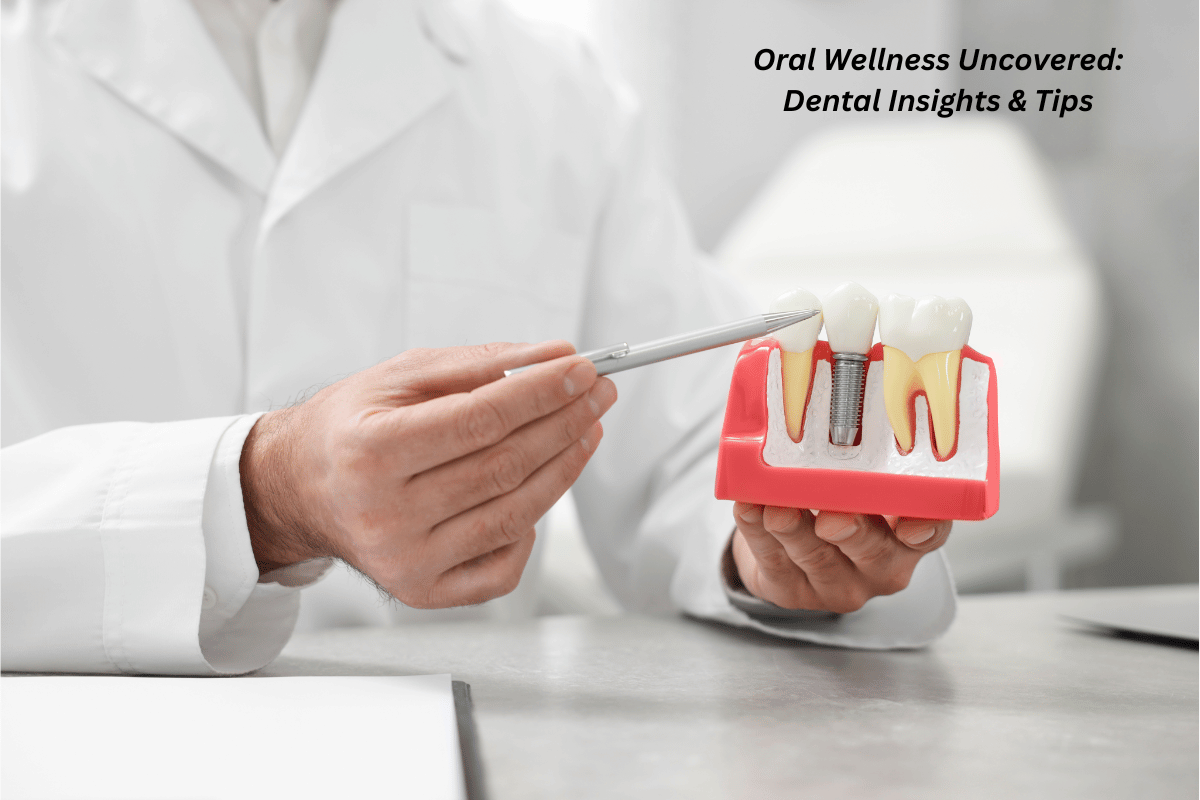Oral Wellness Uncovered: Dental Insights & Tips
Exploring the domain of oral wellness reveals a plethora of valuable dental insights and practical tips that can revolutionize the way we approach oral care. Understanding the intricacies of maintaining dental health is not merely about brushing and flossing but delving into the nuances that can greatly impact our overall well-being. With a focus on proactive measures and informed decisions, this journey into oral wellness promises to shed light on the hidden gems that can lead to a healthier, brighter smile.
Key Takeaways
- Proper oral hygiene prevents gum disease and tooth decay.
- Over-the-counter pain relievers and ice packs help with tooth sensitivity.
- Early detection and treatment are vital for managing periodontal disease.
- Tongue scraping, brushing, and flossing maintain oral health.
- Staying informed about oral cancer prevention is essential for overall well-being.
Dental Problems and Solutions
When faced with dental problems such as toothaches and sensitive teeth, seeking immediate dental consultation is essential to address the issue effectively and prevent further complications.
Tooth sensitivity can cause discomfort while consuming hot or cold foods and beverages. For pain relief, over-the-counter pain relievers and applying ice packs to the affected area can help alleviate toothache symptoms temporarily.
Additionally, using toothpaste specifically formulated for sensitive teeth containing ingredients like potassium nitrate or fluoride can assist in reducing sensitivity over time.
Ignoring tooth sensitivity can lead to more severe issues like tooth decay, highlighting the importance of prompt professional intervention to maintain oral health and overall well-being.
Periodontal Disease Overview
Periodontal disease, a prevalent bacterial infection impacting the gums, bone, and teeth structures, poses significant risks to oral health if left untreated. This condition can result in gum recession, bone loss, and ultimately tooth loss.
Prevention of gum disease involves maintaining good oral hygiene practices, such as regular brushing, flossing, and professional dental cleanings. Bacterial infections are the primary cause of periodontal disease, emphasizing the importance of plaque removal to prevent its progression.
Early detection and treatment are essential to managing periodontal disease effectively. Deep cleaning procedures, antibiotics, and in severe cases, surgery, may be necessary to combat this condition. Understanding the importance of gum disease prevention is key to preserving oral health and overall well-being.
Gingivitis and Periodontitis Symptoms
Symptoms of gingivitis and periodontitis serve as important indicators of underlying oral health issues that require prompt attention and specialized treatment.
Gingivitis typically presents with swollen, tender, and bleeding gums, often caused by plaque and tartar buildup. Proper oral hygiene routines, including regular brushing, flossing, and professional cleanings, are vital for gum disease prevention. Saltwater rinses can help alleviate gum tenderness and swelling associated with gingivitis.
Periodontitis, a more severe form of gum disease, can lead to tooth loss and bone damage if left untreated. Its symptoms, similar to gingivitis in the early stages, progress to include gum recession and pus between teeth and gums. Early detection and intervention through deep cleaning, medication, and in some cases, surgery, are essential for managing periodontitis effectively.
Oral Health Care
Ensuring excellent oral health care involves a thorough approach that encompasses various aspects of dental hygiene and maintenance. Proper flossing techniques are essential for removing plaque and food particles between teeth, preventing cavities and gum disease. This professional dentist in Yorktown VA adds that if flossing is too time-consuming for your liking, you can also use interdental brushes.
Mouthwash benefits include freshening breath, reducing plaque, and fighting bacteria in hard-to-reach areas of the mouth. Tongue scraping is an effective way to remove bacteria and food debris from the tongue, reducing the risk of bad breath.
Consistent tongue scraping, along with regular brushing and flossing, can contribute to overall oral health and hygiene. Additionally, practicing good oral hygiene habits can help prevent bad breath and maintain a healthy mouth.
Health Information and Updates
Health Information and Updates play an essential role in keeping individuals informed about the latest advancements in healthcare, ensuring access to valuable insights and developments.
When it comes to cancer prevention, staying informed about screening guidelines and lifestyle choices can greatly reduce the risk of developing various types of cancer, including oral cancer. Regular screenings and early detection are important for successful treatment outcomes.
Additionally, incorporating nutrition tips like consuming a balanced diet rich in fruits, vegetables, and whole grains can help support overall health and well-being.
Conclusion
To summarize, comprehending the key factors that contribute to excellent oral wellness is crucial for maintaining a healthy mouth.
By addressing common dental problems, such as tooth sensitivity and periodontal disease, and implementing good oral hygiene practices, individuals can enhance their overall well-being.
Stay informed, proactive, and committed to regular dental check-ups to discover the secrets to a radiant smile and healthy mouth.







